In today’s rapidly evolving digital landscape, artificial intelligence has become more than just a buzzword—it’s a game-changing tool that small businesses can leverage to compete with larger competitors. This comprehensive guide will show you how to integrate AI into your small business marketing strategy effectively and affordably.

Why Your Small Business Needs an AI Marketing Strategy
The marketing landscape has shifted dramatically, with AI tools becoming increasingly accessible and affordable for small businesses. From automated customer service to personalized content creation, AI can help level the playing field between small businesses and their larger competitors. By implementing a smart AI marketing strategy, small businesses can streamline operations, reduce costs, and deliver better results for their marketing efforts.
Key Areas Where AI Can Transform Your Small Business Marketing
1. Content Creation and Optimization
AI-powered tools can help small businesses create engaging content more efficiently than ever before. These tools can:
- Generate blog post drafts and social media content
- Optimize headlines and meta descriptions for SEO
- Create variations of ad copy for A/B testing
- Suggest relevant keywords and topics based on market trends
While AI shouldn’t completely replace human creativity, it can significantly speed up the content creation process and provide data-driven insights for optimization.
2. Customer Service and Engagement
Modern AI chatbots and virtual assistants have become sophisticated enough to handle many customer interactions effectively. Small businesses can:
- Implement 24/7 customer support through AI chatbots
- Automatically route complex queries to human staff
- Use AI to analyze customer feedback and identify common issues
- Provide personalized product recommendations based on customer behavior
3. Social Media Management
AI tools can transform how small businesses handle their social media presence by:
- Scheduling posts at optimal times based on audience engagement patterns
- Analyzing competitor strategies and identifying content opportunities
- Monitoring brand mentions and sentiment across platforms
- Generating customized social media responses
4. Email Marketing Automation
Smart AI-driven email marketing can help small businesses:
- Segment audiences more effectively using behavioral data
- Create personalized email content at scale
- Optimize send times for maximum open rates
- Predict customer lifetime value and identify high-value prospects

Getting Started with AI Marketing: A Step-by-Step Approach
Step 1: Assess Your Current Marketing Needs
Before implementing AI tools, evaluate your existing marketing processes and identify areas where automation could have the biggest impact. Consider:
- Which tasks are currently the most time-consuming?
- Where do you see the most human error?
- What marketing activities would you like to scale but currently can’t?
- Which areas of your marketing strategy need the most improvement?
Step 2: Choose the Right AI Tools
Start with tools that address your most pressing needs and offer the best return on investment. Popular options include:
- Content creation tools like ChatGPT or Jasper
- Social media management platforms with AI capabilities
- Email marketing platforms with AI-powered personalization
- Customer service chatbots for website integration
Step 3: Develop an Implementation Timeline
Create a realistic timeline for integrating AI tools into your marketing strategy:
- Month 1: Research and select initial AI tools
- Month 2: Train staff and begin implementing basic features
- Month 3: Expand usage and monitor results
- Month 4: Evaluate effectiveness and adjust strategy as needed
Step 4: Monitor and Measure Results
Track key performance indicators (KPIs) to measure the impact of your AI marketing tools:
- Content engagement rates
- Customer response times
- Email open and click-through rates
- Social media engagement metrics
- Overall marketing ROI
Best Practices for Small Business AI Marketing Success
1. Maintain the Human Touch
While AI can automate many tasks, it’s essential to maintain authentic human connections with your customers. Use AI to enhance rather than replace human interactions, and always have human oversight for important customer communications.
2. Start Small and Scale Up
Don’t try to implement everything at once. Begin with one or two AI tools that address your most pressing needs, master them, and then gradually expand your AI marketing toolkit as you see positive results.
3. Prioritize Data Privacy and Security
Ensure any AI tools you implement comply with data protection regulations and maintain customer privacy. Regularly review and update your privacy policies as you introduce new AI capabilities.
4. Invest in Training
Provide adequate training for your team members who will be using AI tools. This ensures you get the most value from your investment and helps staff members embrace rather than resist new technology.
Common Pitfalls to Avoid
When implementing your small business AI marketing strategy, watch out for these common mistakes:
- Over-relying on AI-generated content without human review
- Implementing too many tools too quickly
- Neglecting to train staff properly on new AI tools
- Failing to maintain consistent brand voice across AI-generated content
- Not having a clear strategy for how AI fits into your overall marketing goals
Looking Ahead: The Future of Small Business AI Marketing
As AI technology continues to evolve, small businesses that embrace these tools early will have a significant advantage. Future developments in AI marketing are likely to include:
- More sophisticated personalization capabilities
- Better integration between different marketing tools
- Improved natural language processing for customer interactions
- Advanced predictive analytics for customer behavior
By starting to implement AI marketing tools now, small businesses can build the foundation for future success while immediately improving their marketing effectiveness and efficiency.
Remember, the goal of implementing AI in your small business marketing strategy isn’t to replace human creativity and decision-making—it’s to enhance your team’s capabilities and free up time for more strategic activities. By following these guidelines and best practices, you can create a powerful AI-driven marketing strategy that helps your small business grow and thrive in today’s competitive marketplace.



